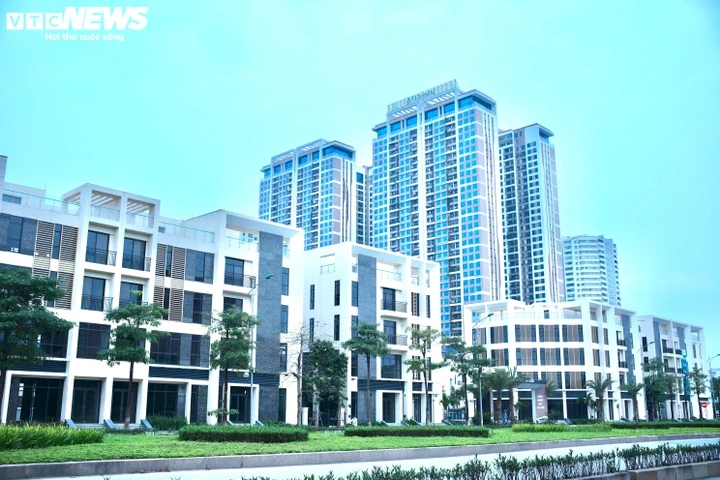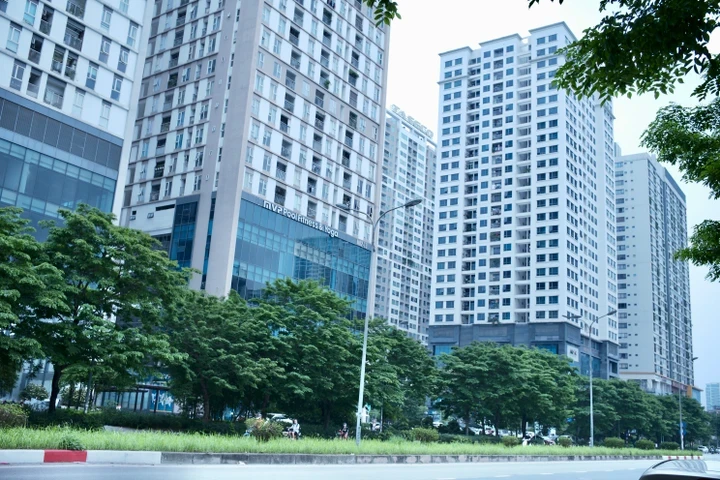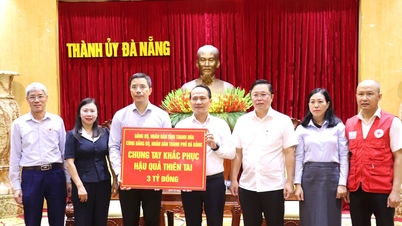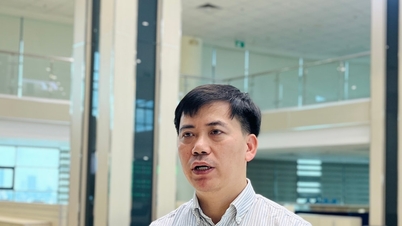According to experts, when deposit interest rates increase, banks' input costs will increase, putting pressure on lending interest rates is almost inevitable, although there may be a certain delay.
It is forecasted that in the coming months, banks will find it difficult to maintain low lending levels as in early 2025. Therefore, average lending interest rates in the fourth quarter may increase compared to the third quarter of 2025.
According to the Vietnam Association of Realtors (VARS), the first and most obvious impact when lending rates increase is the decline in liquidity in the market. Homebuyers, especially those using loans, will reconsider their financial plans. Meanwhile, investors are more cautious with plans to expand their portfolios, because the expected profitability is unlikely to offset the increased cost of capital.
At the same time, project development enterprises face a double risk: increasing financial costs while demand declines, causing cash flow to slow down and new supply to shrink. When supply decreases, transactions stagnate, and prices therefore find it difficult to maintain the same upward momentum as in the previous period.

With the characteristic of using large debt leverage, real estate is the investment channel most directly and deeply affected by interest rate fluctuations. Part of the reason comes from the investment psychology of relying on short-term loans, while real estate projects and assets have long investment cycles. When capital costs increase suddenly, cash flow is disrupted, and the risk of illiquidity is almost inevitable.
According to VARS, the pressure also comes from preferential home loans. In recent years, to stimulate the market, many investors and commercial banks have launched home loan packages with preferential interest rates from only 5.5%/year, even interest-free, with principal grace periods of up to 5 years. This policy helps a large number of people and investors access cheap capital to own real estate.
However, the preferential period is often only temporary. When entering the floating interest rate period, if the general interest rate level increases, the pressure to repay the debt of home buyers will increase sharply. When market liquidity is low, reselling products to cut losses becomes difficult and the risk of bad debt can return to the credit system.
According to VARS, prolonged high interest rates can also weaken the ability to expand land funds and start new projects. In fact, banks often tend to increase interest rates during periods of market downturn. At that time, many businesses choose to "sit still" instead of expanding investments to limit losses. As a result, housing supply is at risk of declining in the medium term.
According to Associate Professor Dr. Dinh Trong Thinh - an economic expert, interest rates are the most sensitive "regulating valve" for the real estate market. When borrowing costs increase, housing prices are unlikely to increase as sharply as in the previous period. Investors using high financial leverage are forced to restructure their portfolios or sell assets to reduce their debt burden. Meanwhile, those with real housing needs must also recalculate their financial plans because of the increased pressure to repay monthly debts.

What should home buyers do?
In this context, VARS recommends that people should not borrow more than 50% of the property value to avoid risks when interest rates increase. At the same time, they should choose reputable investors and projects with transparent legal status to avoid losing both money and property when the project is behind schedule or cannot be handed over.
Dr. Nguyen Tri Hieu, a finance and banking expert, also recommends that home buyers should only borrow up to 80% of the property value, while ensuring that monthly repayments do not exceed 50% of net income. More importantly, they should have a reserve fund of at least 6-12 months, in case of job loss or income reduction.
Mr. Do Quy Duy - CEO, Thoi Dai Moi Real Estate Investment and Trading Company - shared that for a family with a monthly income of about 30-40 million VND/month, it is reasonable to only borrow about 40% of that cash flow value to pay bank interest.
Specifically, with an income of 30 million/month, you should spend about 12 million to pay the bank, with an income of 40 million/month, you should spend about 16.17 million. This is a suitable loan.
As for those with an income of only about 20 million VND, they should consider increasing cash flow before taking out a home loan to avoid risks.
Since the beginning of November, many banks have increased their deposit interest rates. For example, VPBank increased by 0.3%/year compared to the previous month. Techcombank announced that the interest rate for 1-2 month term increased by 0.2%/year to 3.95%/year; the interest rate for 3 month term increased by 0.3%/year to 4.75%/year. PVCombank also simultaneously increased interest rates by 0.5%/year for terms from 1-36 months. Ho Chi Minh City Development Joint Stock Commercial Bank ( HDBank ) increased interest rates by 0.15%/year for 1-5 month terms and 0.2%/year for 6 month terms. The Prosperity Era Commercial Joint Stock Bank (GPBank) has adjusted its deposit interest rates for all terms. The increase is 0.1% per year for 1-5 month term deposits and 0.2% per year for 6-36 month term deposits. | |
Source: https://baolangson.vn/lai-suat-tiet-kiem-tang-thi-truong-bat-dong-san-chiu-tac-dong-gi-5064670.html







![[Photo] Highways passing through Dong Nai](https://vphoto.vietnam.vn/thumb/1200x675/vietnam/resource/IMAGE/2025/11/12/1762940149627_ndo_br_1-resize-5756-jpg.webp)























































































![Dong Nai OCOP transition: [Article 3] Linking tourism with OCOP product consumption](https://vphoto.vietnam.vn/thumb/402x226/vietnam/resource/IMAGE/2025/11/10/1762739199309_1324-2740-7_n-162543_981.jpeg)








Comment (0)